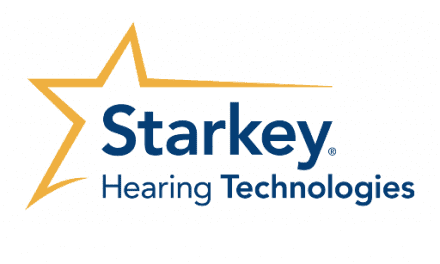By Granville Brady, AuD

Since good reliable employees are the heart and soul of any dispensing practice, employee compensation should be one of the most important business decisions an owner can make to ensure the continuation of the business.
One topic that is rarely discussed by hearing health professionals is employee compensation. There are several reasons for this self-imposed gag order: the reluctance of professional associations to publicly recognize that hearing aids are subject to the rules of retail sales, the prohibition on paying bonuses to anyone fitting hearing aids covered by government agencies or paid by tax dollars, and the general societal secrecy by which remuneration is generally regarded in America. Religion, politics, and salaries are all forbidden topics that almost assuredly raise eyebrows.
In more recent years, the subject of ethics in commission-based pay scales for dispensing professionals has been addressed by several organizations and individuals.1 Although this is an important consideration for any hearing care provider, the topic is beyond the scope of this article, which will deal primarily with the “business” aspects of commissions.
Changing Competition; Changing Systems of Compensation
Acknowledging the above, how employees are paid is certainly a timely issue especially when the hearing aid delivery system is becoming more retail oriented. As large companies continue to buy up smaller practices, the way by which employees are paid may be changing.
Most companies that provide consumer goods pay their salespeople a commission. Whether it is large-ticket items like furniture or hearing aids, a retail company’s goal is to increase sales. Simply paying a base salary often does not provide enough incentive for hearing care professionals to reach the employer’s sales goals.
Commissions are paid not only to increase the “bottom line” but to encourage a company’s growth. Larger dollar volume often translates into lower acquisition costs that allow the company to spend more on marketing, which, in turn, creates more demand and greater growth. A company that is happy with current sales volumes often finds itself being outpaced in an ever-increasing aggressive market such as hearing aids.
Where does this leave the dispensing professional who provides both diagnostic services and products? In some cases, the small practice will go under while, in other cases, the smaller practice is able to provide services that larger companies cannot. By restricting compensation to commissions, the sales force is often chasing the “carrot on the stick” and ignoring one of the most important aspects of selecting and fitting amplification—the need for ongoing cordial service and patient counseling. Simply increasing units does not always translate into a better reputation, especially in communities that value small businesses and the services they provide.
Commission Systems
There are several systems commonly used to pay commissions, including several summarized recently in an interesting article by Phelps.2
Gross profit based. The first is to pay on gross profit. If the acquisition cost of a hearing aid is $750 and the instrument sells for $2,195, the profit margin is 65% with a gross profit (selling price minus cost) of $1,445. The commission is paid on $1,445 and usually ranges from 10% to 50%. For example, a commission of 15% paid on $1,445 would be $216.75. For a binaural sale, it would double to $433.50.
Revenue based. A revenue commission is paid on all revenue brought in to the company. For example, if the audiologist or hearing instrument specialist brings in $725,000 in sales and the commission is 12%, the employee would earn $87,000. Revenue based commissions can be very profitable on big ticket items; however, for hearing aids and audiology services, it can pose a problem when sales are down. Additionally, commissions paid on services often conflict with laws prohibiting bonuses paid on revenue generated from government (Medicaid) or other federal dollars.
Placement fees. Placement fees are paid on the number of units sold. This is often applied to automobile sales where the bonus, for example, might be $300 for every car sold. Since hearing aid prices vary widely, set placement fees are usually not applicable and are not common in our field.
Revenue gates and tiers. Finally, commissions paid based on revenue gates offer both the employer and employee incentives. For example, in one practice, a 10% commission is paid on gross sales from $1 to $250,000. The commission jumps to 12% for sales from $251,000 to $500,000, and anything over $500,000 yields a 15% commission. Best of all, the highest commission is paid when the employee reaches the next plateau or gate. In this way, an employee who sells $501,000 gets 15% on everything backed to the first sale. For sales of $501,000, the commission would be $75,150 set back to the first dollar.
Revenue tiers work in a similar manner, except the commission rate applies only to sales in each commission bracket.
Revenue gate/tier commissions are not easy to track, but the widespread use of computers makes the task less difficult. The reason for setting up increasing levels of commission is to motivate the hearing care professional to produce more sales, which, in turn, makes the company more profitable. Structured properly, it can be a win-win situation for both employer and employee.
Why Base Salaries Make Sense
Any type of commission structure fails to account for time spent on low revenue generating activities, such as follow-up fittings, some diagnostic testing, vestibular examinations, tinnitus management, etc. For this reason, a base salary can be set to compensate the professional for these non-revenue-producing activities. For example, if a base salary of $35,000 is paid along with the above revenue gate commission, the professional could earn up to $110,150 ($35,000 base + $75,150 commissions).
Any form of commission structure should be carefully considered to allow for the employer to make a profit, pay all fixed costs, and plan for the growth of the business. Since good reliable employees are the heart and soul of any dispensing practice, employee compensation should be one of the most important business decisions an owner can make to ensure the continuation of the business.
Practices that are involved heavily in providing instruments for entitlement programs, such as Medicaid, Vocational Rehabilitation, child health services, and federally funded HMO plans, are enjoined from paying any bonuses or commissions on these sales. It is a violation of federal law to pay incentives to anyone for treating entitlement patients. Medicare specifically prohibits anyone from procuring business from a Medicare recipient, so a practice that does business with these entities is advised to refrain from paying commissions and bonuses. However, there are dispensing offices and retailers that do not participate in any entitlement or insurance plans and these establishments are not prohibited from compensating their employees based on production.
One caveat that a dispensing practice owner needs to consider is that the cost to the patient can be much greater in a retail market than it is when the services are rendered in a facility that does not offer a financial reward. Reasons for the discrepancy in cost to the patient include not only payment of commissions but the higher advertising and marketing costs associated with a strictly retail operation. Where the facility benefits from government entitlement programs, the labor costs are often much lower but the salaries for audiologists and/or hearing instrument specialists can be higher because of competition for licensed practitioners.
In the United States, competition and entrepreneurship have been the backbone of our economy since the founding of our country. A frank discussion on remuneration is a healthy way for any industry to remain viable in an ever-competing market.

|
Granville Brady, AuD, has owned a private audiology practice in Clifton and East Brunswick, NJ, for 30 years. CORRESPONDENCE can be addressed to Dr Brady at: [email protected] |
References
1. American Academy of Audiology (AAA). Advisory opinion: Hearing aid commissions. Available at: http://www.audiology.org/about/membership/ethics/Pages/ea2007a.aspx
2. Phelps T. The Different Types of Sales Commissions: How You Get Paid. Available at: http://salescareers.about.com/od/Motivation/tp/The-Different-Types-Of-Commission.htm





